Episode 7: How to Successfully Network to Make an Impact
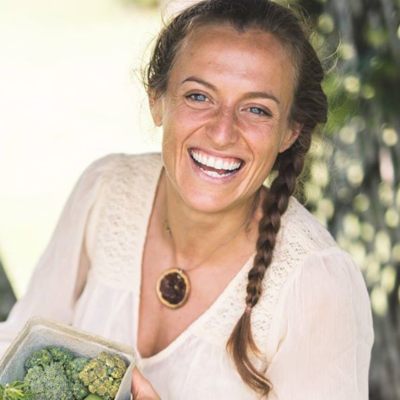
About the Podcast
Registered dietitian Amanda Frankeny shares the importance of networking and why we need to get our heads and hearts around the differences between preaching nutrition, teaching, and lifting others up.
About Amanda Frankeny
Amanda Frankeny is the Food Dignity® Project’s Podcast Producer and a registered dietitian. She’s honored to be able to work with this podcast and watch it grow listeners’ understanding of themselves, others, and the voices behind hunger across America.
Amanda is consultant working on food and nutrition strategy and content creation over various platforms from podcasts, smartphone apps, to online and in-person courses. Her clients range from minority, low-income populations to national health insurance companies. She is also a contributor to the HuffPost and has co-authored articles for the Food Network’s Healthy Eats blog. Prior to consulting, she worked with a nutrition education network that combined stakeholder efforts to end poverty across the state of Pennsylvania.
She currently sits on the Advisory Council for Penn State ProWellness, is a member of the Messiah College Nutrition and Dietetics Advisory Board and a board member of the Delaware Valley Chapter of the Society for Nutrition Education.
Discussion Takeaways
- Connectivity is fuel! We all want to tackle complex issues, like hunger. The bigger the problem, the more help we’ll need.
- Networks provide continuing education opportunities, allyship building, and streamlined communication.
- As food insecurity professionals, we need to understand that leadership bubbles up all around us. We need to consider how we can reach that, how we tap into that, how do we celebrate that!
- Moralizing foods or cooking practices creates a superior us and inferior them. This individualizes shortcomings and stops us from paying attention to the real problem. For instance, we don’t want to default to saying, “Families don’t have the right values because they’re buying chips or fast food.” Instead, we want to ask the bigger questions like, “Are there healthier options readily available and affordable in communities? Why do I deserve to eat better or more than the next person? Why is there so much food produced yet people still go hungry?” In order to solve food and nutrition insecurity, we have to take the fight beyond the kitchen and come up with a collective solution.
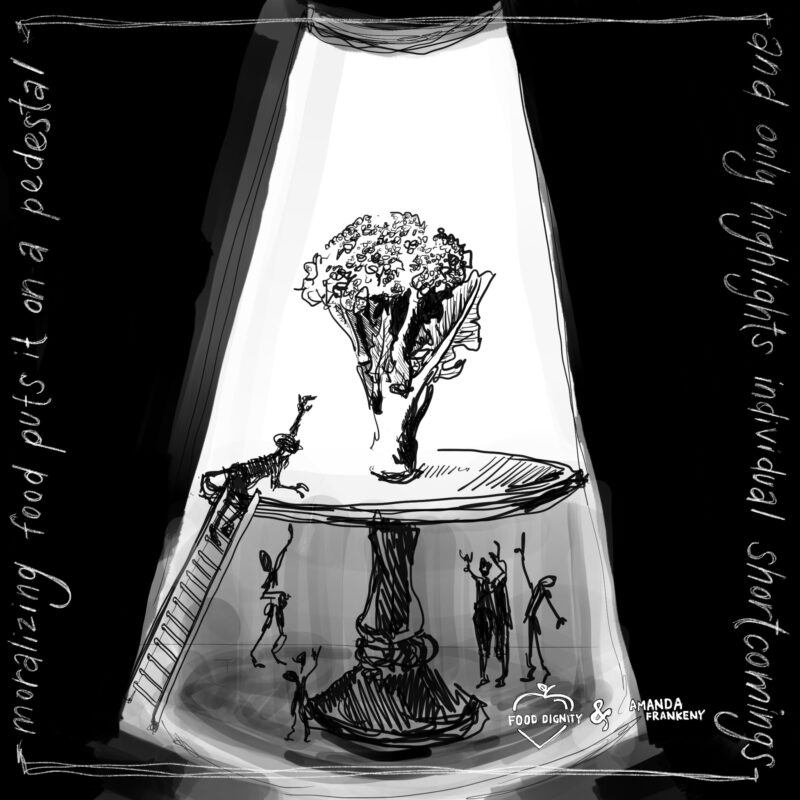
- At 10 years as a dietitian standing up for the rights of those suffering from food insecurity, poverty, and economic injustice, Amanda learned one of the biggest lessons of her career. It came during a recipe testing at a food pantry. Guests made something she dreamt up, a jelly barbeque sandwich. The recipe cooked quick, had few ingredients, and who doesn’t like barbeque!? But one of her participants disagreed, gentle-voiced and dignified. She dropped her cooking utensils, “Jelly is expensive.” She was looking straight at Amanda. She recently became a single mom of four after losing her husband to a brain tumor. She now worked two jobs and moved into a mobile home with room for the kids, a couch, sleeping quarters and little else. She knew exactly how her jelly would be used – as a part of a PB & J. This condiment would NOT be caught in an unfamiliar dish that her family might not eat. She worried constantly about getting children kids enough food, on top of everything else. Every drop of jelly counted.

- As a food and nutrition health professionals, we must look deeper and see why people choose the food they do. We can't ask what healthy things are on people's plates, if they don't have the money to purchase or have access to healthy foods. When people are lacking these resources, they are asking themselves, "Can I get anything on my plate to fill my belly?"
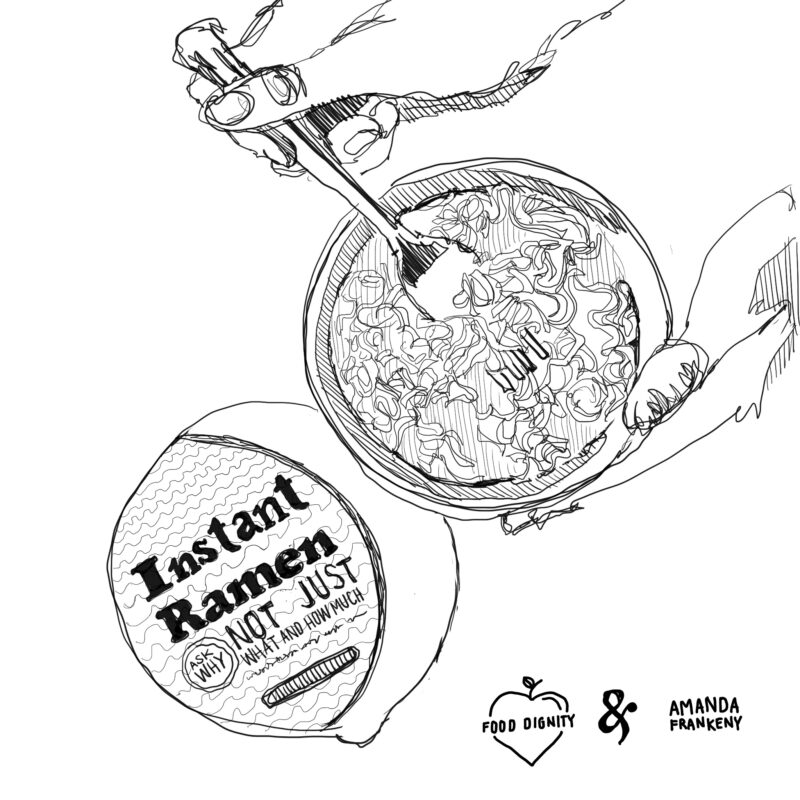
The beautiful images above were created by Rebecca Garofano, our Food Dignity Institute Lead and Illustration Specialist. You can find more of her work at @VeggieDoodleSoup on Instagram and at her website veggiedoodlesoup.com.
#1 tip to improve access to healthy food
We need to share the story of food insecurity so that the story can be owned, and the ending can change. Right now, a certain caricature of those who are “abusing the system” is out there. And, that narrative is owning us allowing for racism, classism, and poverty to prosper. If we retell people’s stories using the lens of dignity, we won’t be beholden to the current one.
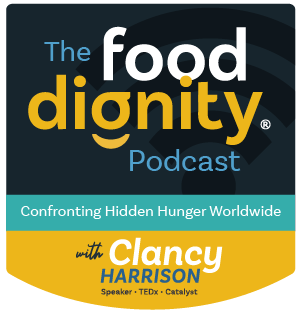
Each week on the Food Dignity® Podcast, the Food Dignity® Movement’s Clancy Harrison hosts a wide variety of hunger experts and other people making changes on the frontlines. Join us as we dive deep into conversations that will change the way you think about food insecurity.
Listen to our trailer!
Want to learn more about how we might work together?
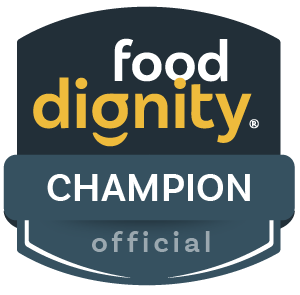
Fight hidden hunger by becoming a
Food Dignity® Champion and take the HIDDEN HUNGER PLEDGE >


